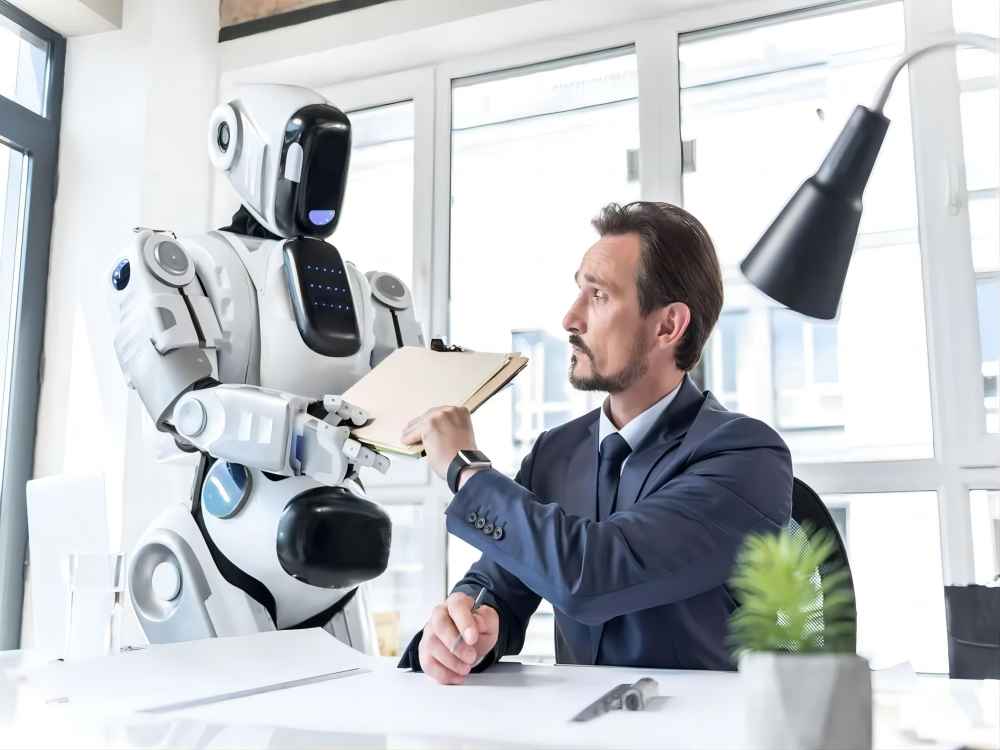For Businesses and Society, AI + Blockchain = ?

Successful products are often a synthesis of elements from previous eras, such as computers and cell phones. Therefore, what new products could potentially be synthesized based on new materials?
What AI and blockchain essentially offer
AI can be seen as a non-human intelligent entity with the ability to adapt to changing environments. The higher the AI's behavioural adaptation, the better it can generalise its behaviour.
In the past, automation referred to machinery and systems that could operate without human intervention. AI can be considered an upgrade to automation, allowing for super automation that combines formal flexibility and control principles.
As for blockchain, it remains unclear how it relates to the previous discussion. The essence of blockchain technology is its tamper-proof capability, which is extremely difficult to alter. This capability is closely related to the trust system and offers the possibility of reconstructing it. In summary, blockchain technology offers the potential for large-scale automation and credit system reconstruction.
Individual and whole, C-end and B-end
The C-end is centred on the individual, prioritising the individual experience, while the B-end focuses on the organisation, emphasising the reconstruction of relationships.
The impact of AI on the C-suite is relatively simple: to replace various people and products encountered in daily economic life with robots.
The end result is smaller businesses with fewer staff, but creating more value.
What impact will blockchain have when added to the mix? It could potentially eliminate the need for businesses, or even allow individuals to operate as businesses themselves.
Disappearing businesses
To be precise, the enterprise is not disappearing, but the balance between silicon-based intelligence and carbon-based intelligence will shift, leading to a redefined relationship between people and organizations.
As the number of digital employees increases, operational activities will decrease, and strategic work will become more critical. Strategic work involves not only the actions taken but also the underlying values, making it unsuitable for digital employees.
To illustrate, only certain functions such as human resources, IT, finance, and branding have digital employees, while financial-related processes that require non-tamperable characteristics are recorded on the blockchain.
This collection of systems is referred to as management intelligence, which is distinct from business intelligence (BI).
Strength and independence of structure
It is noteworthy that this direction aligns with efficiency. As humans give away more, they become more efficient. In other words, we continue to eliminate ourselves, or at least our instrumental attributes, after the awakening of intelligence.
The question that arises is: if people are deemed useless, what propels the economy? Is it silicon-based intelligence that maintains the balance? Although it is unlikely to be truly self-driven, what is the value of human beings in this scenario?
Finding the driving force is crucial to understanding one's place in this new cultural landscape.
The pursuit of wealth was the driving force behind the Great Maritime Expansion. However, it cannot be the driving force behind such a structure as it would cause significant internal imbalance and frictional dissipation.
Culture is a grand synthesis of people and their environment, and this synthesis knows no boundaries as long as space and time are infinite. People are the soul of culture.
The process of discovering one's own value in a complex cultural system involves anchoring one's nature and embracing a certain kind of Taoism. Once on this path, the economy assumes the role of water and food.
In this system, everything human is extremely costly.
It is only when human things are expensive that true equality can be supported. A purely human-centered economy or rights system will not function.



















